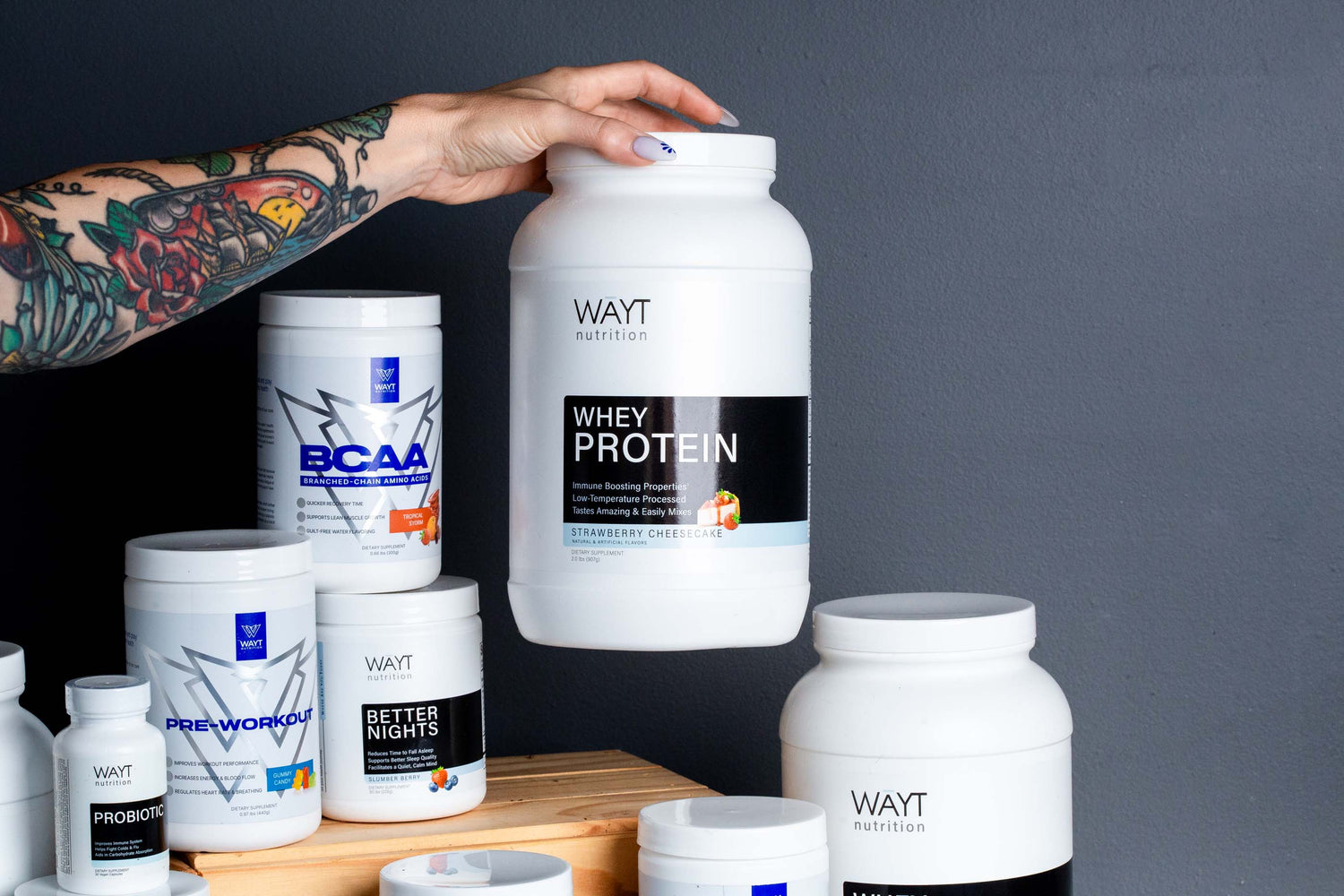Are you struggling with an upset stomach or ongoing gut problems? Unfortunately, you're in good company. Gut health problems are a mainstream issue that disrupts our lives daily. A survey by the American Gastroenterological Association found that a staggering 40% of Americans’ daily lives are disrupted by digestive troubles.
There is good news. Getting on top of your gut health can be as simple as making small, strategic changes to your diet and lifestyle. Here are some of our best tips for improving your gut health and feeling like your best self again.
Add Omega-3 Fatty Acids
 Omega-3 fatty acids are often hailed for their brain-fueling properties, but they can also benefit your gut. Add more fatty fish, including salmon and mackerel, chia seeds, flaxseeds, and walnuts, to your diet. Supplements can also give you a boost of Omega-3s anti-inflammatory properties that can stabilize and help heal your gut.
Omega-3 fatty acids are often hailed for their brain-fueling properties, but they can also benefit your gut. Add more fatty fish, including salmon and mackerel, chia seeds, flaxseeds, and walnuts, to your diet. Supplements can also give you a boost of Omega-3s anti-inflammatory properties that can stabilize and help heal your gut.
Limit Artificial Sweeteners
Artificial sweeteners are generally bad news for your health and can lead to headaches and energy crashes. But they can also lead to the alteration of healthy gut bacteria. Instead of reaching for Splenda and aspartame products, try natural sweeteners like honey or maple syrup in moderation.
Bone Broth
Bone broth can help supplement your collagen production and fuel more amino acids in your diet. In turn, those same nutrients can support healthy gut health and could aid in repairing your intestinal lining.
Herbs and Spices
Herbs and spices have long been a way to settle upset stomachs. They also improve gut health with their anti-inflammatory properties. Try adding small amounts of ginger, turmeric, and peppermint to hot drinks, such as tea, as an afternoon pick me up.
Polyphenol-Rich Foods
Not all gut bacteria are bad and we need more of the healthy types to balance our systems. Polyphenols are thought to aid in the growth of beneficial gut bacteria. Try drinking green tea to consume more polyphenols and feel an improvement in your gut health. Berries, dark chocolate, and nuts are also filled with polyphenols.
Fermented Drinks
Traditional fermented foods are known to have probiotics that help improve your gut health. If you're not a fan of sauerkraut and kimchi, try a fermented drink like kombucha or kefir. They both introduce more probiotics to your diet and give your taste buds a unique treat.
Consume More Probiotics
 If you can't get enough probiotic-rich foods like yogurt, kefir, sauerkraut, kimchi, and other fermented foods in your diet, you can supplement them instead. Probiotics introduce beneficial bacteria into the gut, which works to enhance the balance of your gut's unique microbiome.
If you can't get enough probiotic-rich foods like yogurt, kefir, sauerkraut, kimchi, and other fermented foods in your diet, you can supplement them instead. Probiotics introduce beneficial bacteria into the gut, which works to enhance the balance of your gut's unique microbiome.
Consider Prebiotics
We already talked about probiotics, but what about prebiotics? Prebiotics are types of special plant fiber that fuel good gut bacteria. Add more garlic, onions, leeks, asparagus, bananas, and whole grains to your diet to help nourish the existing, beneficial bacteria in your gut.
Consider Intermittent Fasting
Fasting isn't for everyone, but it may be a good choice if you're comfortable fasting 14 hours a day or more. The idea is that you allow your digestive system to reset and reset. As many people close their eating window in the evening, intermittent fasting can also help with overactive digestion, which deprives you of much-needed sleep.
Experiment with Elimination Diets
Elimination diets help tease apart food sensitivities and intolerances and allow you to adjust your diet accordingly. For example, eliminating all dairy can signal if it's the reason you feel bloated, trigger congestion, or cause a headache. Work through eliminating common allergens first, such as nuts, eggs, and milk. It's wise to eliminate one at a time to figure out which is bothering you the most.
Use Proper Food Storage and Preparation
Proper food storage and preparation is often overlooked as a source of poor gut health. Foodborne illnesses spread rapidly and can disrupt your gut. Store food separate from one another in airtight containers as appropriate. For example, don't leave a thawing steak on top of a carton of strawberries.
Diversify Your Diet
 Your gut biome needs a diversified diet to stay healthy and enjoy beneficial gut bacteria. Try consuming a balance of fiber, whole grains, lean protein, and a colorful array of fruits and vegetables. Processed food should be kept to a minimum, if not eliminated altogether.
Your gut biome needs a diversified diet to stay healthy and enjoy beneficial gut bacteria. Try consuming a balance of fiber, whole grains, lean protein, and a colorful array of fruits and vegetables. Processed food should be kept to a minimum, if not eliminated altogether.
Stay Hydrated
Drinking more water is always sound advice for all types of health ailments. Staying hydrated also supports good digestion and nutrient absorption and helps maintain the mucosal lining of your intestines.
Manage Your Stress Levels
When we're stressed out, we can feel it in our guts. Practice stress-reducing techniques like meditation, deep breathing, and yoga, and get regular exercise. Chronic stress directly impacts gut health and disrupt the balance of the microbiome and regular physical activity is linked to a more diverse and healthier gut microbiota.
Next Steps
Ready to get a handle on your gut health? Start shopping for our supplements or comprehensive health programs to pick up organic greens, multivitamins, probiotics, and more.

